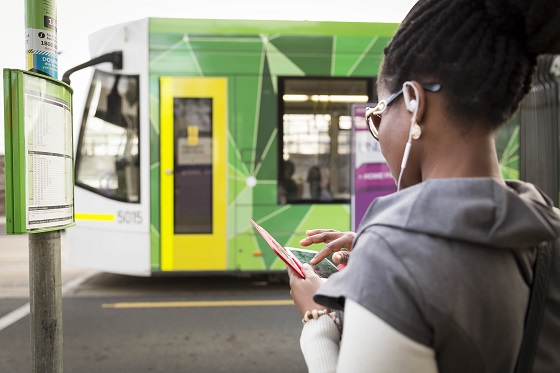Vision Australia clients from across the country have recently been equipped with some expert advice about how stay safe at home and in the wider community.
Through a partnership between Vision Australia’s Client Engagement team and Crime Stoppers, approximately 36 Vision Australia clients recently participated in four telephone based information sessions in which they received advice specifically tailored to the blind and low vision community about crime prevention and what to in the event a crime does occur.
Along with a staff member from Crime Stoppers, Vision Australia staff also participated in the sessions to provide advice on how clients can implement strategies to keep them safe.
In terms of safety around the home, participants were provided with a range of information about how to keep themselves and their property safe even if they happen to be away from home.
Participants were reminded about basic measure such as:
- Keeping doors and windows locked – even if you’re home
- Removing ladders and other implements that could assist somebody enter your home
- Ensure valuable items can’t be seen from outside your home
- Have somebody collect your mail and put your bins out if you’ll be away for an extended period.
Participants were also reminded about further steps they can take, including limiting social media posts about being on holidays, using timed lights to give the impression your home is occupied and even contacting your local police station to see if they have an absence register or similar system.
When it came to being out of the home, staying safe on public transport was a big focus of the sessions.
People who use busses, trains and trams were given useful advice such as:
- Arrive at the station or stop at the correct time to reduce waiting time
- Travel via stops and stations that are staffed and are in safe locations
- Familiarise yourself with safety features such as lighting, CCTV and intercoms at stations
- Stay close to other passengers and keep track of your belongings.

Participants were also reminded their smartphone can be a useful tool to help them to help them know when their stop is approaching as well as allowing them to contact emergency services.
Taxi users were reminded that it’s safer to book a taxi rather than hail one, while back passenger side seat is the safest seat to sit in as it has the best security camera coverage.
The sessions also covered how to recognise scams and what to do if somebody approaches you with a deal that might sound too good to be true.
Travelling con men often pose as tradespeople and after they receive payment either don’t carry out the work as promised or it is of a sub-standard quality. If you think you’ve been approached with a scam:
- You can say “I’ll get another quote”, or “I need to discuss this with my partner or friend” if you don’t feel comfortable asking someone to leave.
- If you do ask them to leave, and they don’t, they’re breaking the law. Call the police on 000.
- Report them to the National Con Men Hotline on 1300 133 408
Phone and email scams, such as fake contact by the ATO or banks were also covered and people were reminded to:
- Never give out personal details via email: passwords, bank account details, or copies of personal documents.
- Do an internet search for the scam and use the wording of the letter or email you’ve received.
- Avoid contact with strangers who ask for payment upfront via money transfer, wire transfer, or prepaid gift cards.
- Government departments will never ask for a fee upfront before you can claim a benefit or rebate. Banks or loan providers will never ask for a fee to guarantee approval.
Participants in the sessions were also reminded that groups such as Crime Stoppers, Neighbourhood Watch and other local community groups play an important role in crime prevention.
To find out more about these sessions, please contact the Client Engagement team on email: [email protected].










